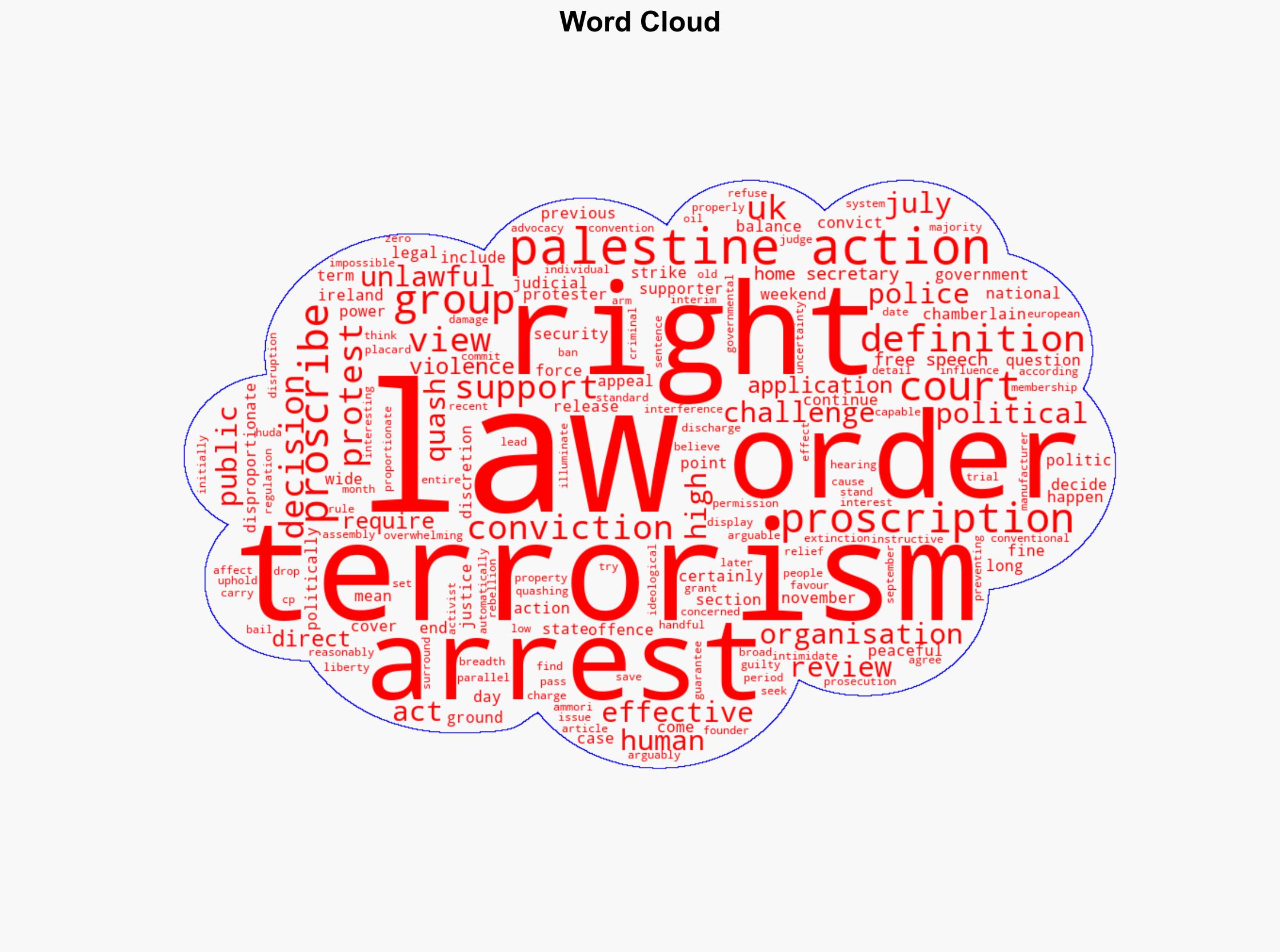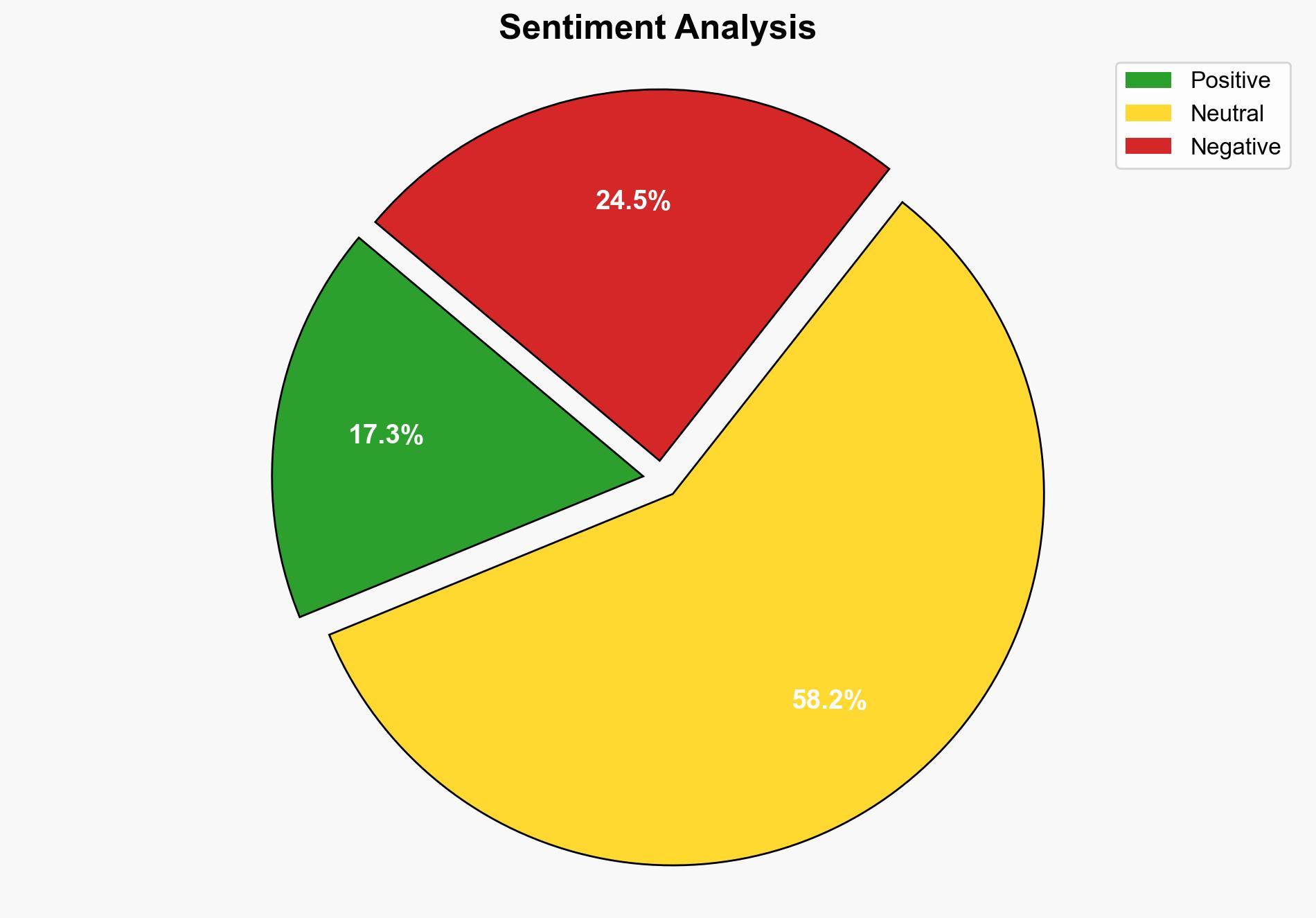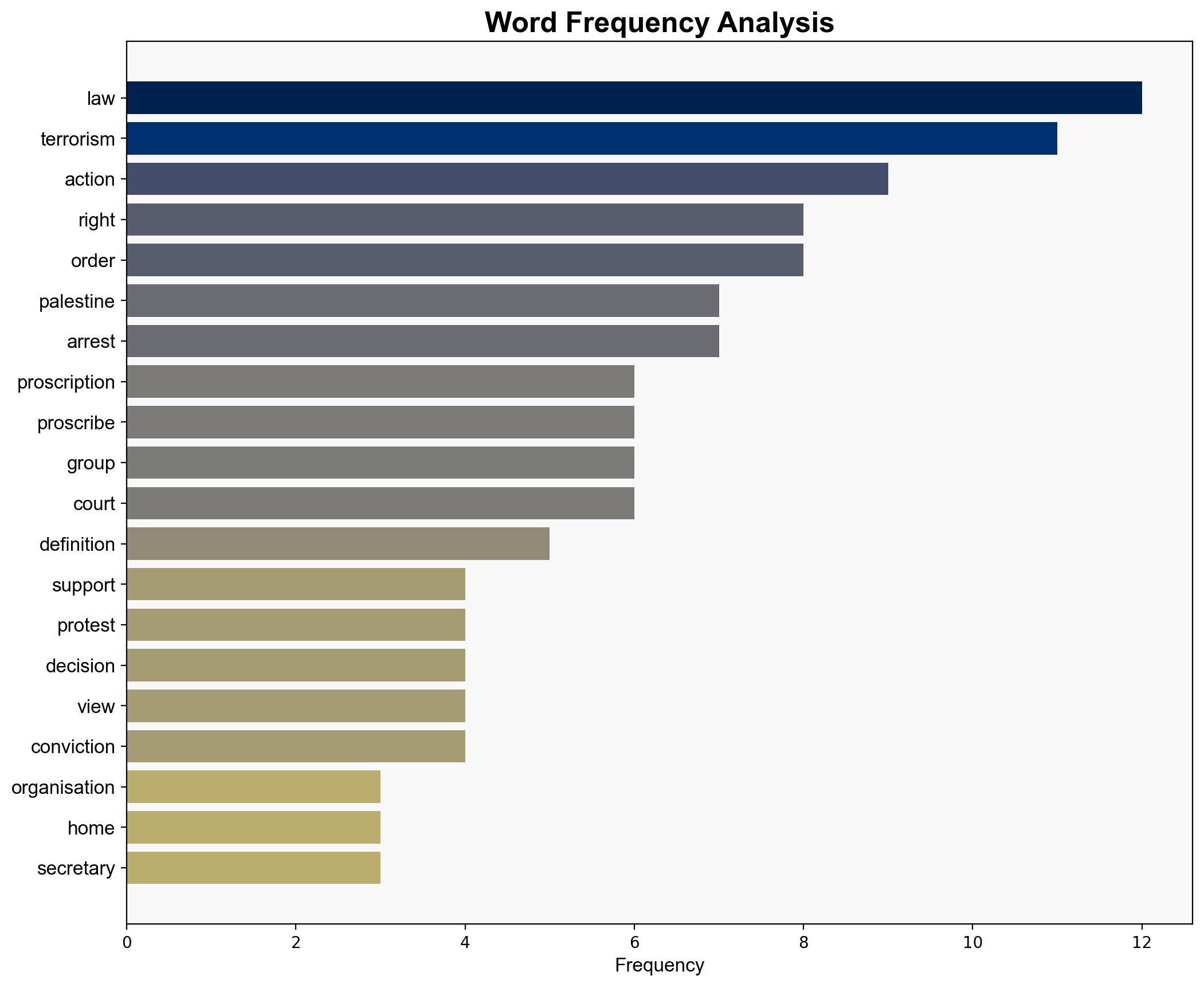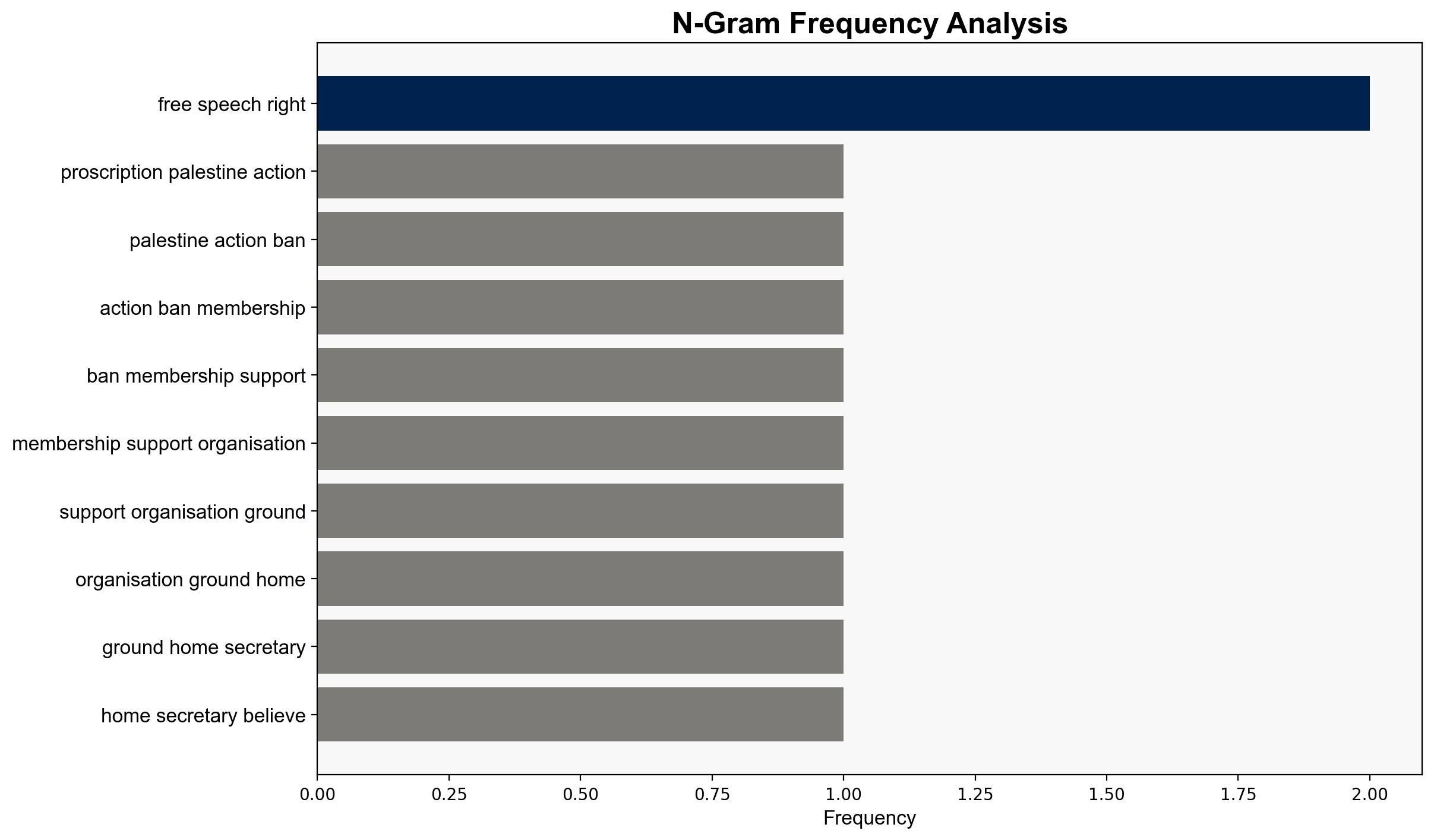Palestine Action arrests what happens next and what it tells us about the breadth of Britains counter-terrorism laws – The Conversation Africa
Published on: 2025-08-15
Intelligence Report: Palestine Action arrests and the breadth of Britain’s counter-terrorism laws
1. BLUF (Bottom Line Up Front)
The application of Britain’s counter-terrorism laws to Palestine Action raises significant questions about the balance between national security and civil liberties. The most supported hypothesis is that the broad application of these laws may lead to increased legal challenges and potential revisions. Confidence level: Moderate. Recommended action: Monitor legal proceedings and prepare for potential policy adjustments.
2. Competing Hypotheses
Hypothesis 1: The proscription of Palestine Action under counter-terrorism laws is a necessary measure to prevent potential threats to national security. This hypothesis suggests that the group’s activities, including property damage, align with the legal definition of terrorism, justifying the arrests and legal actions.
Hypothesis 2: The proscription of Palestine Action is an overreach of counter-terrorism laws, potentially infringing on civil liberties and rights to free speech and assembly. This hypothesis posits that the broad definition of terrorism is being used to suppress legitimate protest and dissent, leading to legal challenges and potential judicial review.
3. Key Assumptions and Red Flags
Assumptions:
– Hypothesis 1 assumes that all actions by Palestine Action pose a genuine threat to national security.
– Hypothesis 2 assumes that the legal framework is overly broad and not proportionate to the threat level.
Red Flags:
– The lack of clear evidence linking Palestine Action’s activities to direct threats to public safety.
– Potential bias in interpreting the legal definitions of terrorism to include non-violent protest actions.
4. Implications and Strategic Risks
The broad application of counter-terrorism laws could lead to increased public dissent and legal challenges, potentially undermining public trust in government institutions. There is a risk of escalating tensions between activist groups and law enforcement, which could result in further protests and international scrutiny. Additionally, the legal precedent set by these actions could impact future interpretations of terrorism laws.
5. Recommendations and Outlook
- Monitor the outcomes of the judicial review and prepare for potential policy revisions.
- Engage with civil society groups to address concerns about civil liberties and ensure transparent communication.
- Scenario-based projections:
- Best Case: Legal clarity is achieved, balancing security and civil liberties, reducing tensions.
- Worst Case: Increased legal challenges and public unrest, leading to policy gridlock.
- Most Likely: Incremental legal adjustments with ongoing public debate.
6. Key Individuals and Entities
– Huda Ammori: Founder of Palestine Action, central to legal challenges against proscription.
– Justice Chamberlain: High Court judge involved in granting permission for judicial review.
7. Thematic Tags
national security threats, civil liberties, counter-terrorism, legal challenges




